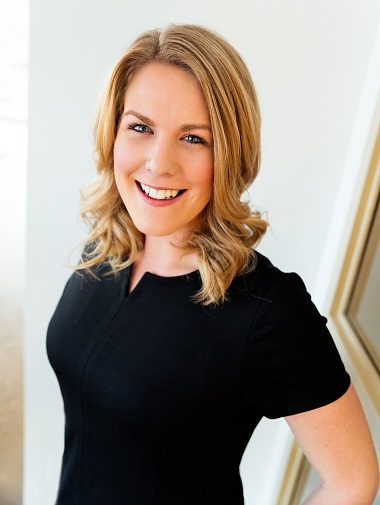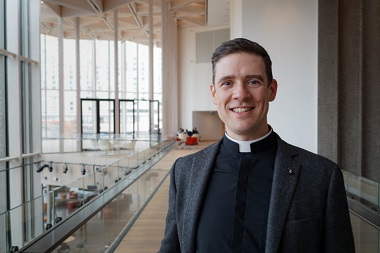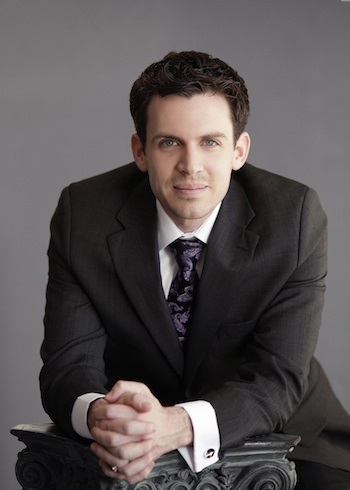
Conservative MP Rachael Harder will discuss politics at the Apologetics Conference.
Organizers of the Apologetics Conference next weekend (March 1 – 2) point out that apologetics “is not about apologizing,” but instead is about “giving an answer for the hope we have in Jesus Christ.”
Several keynote speakers will make the case that those answers ought to play out in the public as well as the personal realm – in other works, that Christians have a place in the public square and in politics.
Three of those speakers will make up a panel addressing the issue ‘Freedom of Religion: Being a Public Christian’ Friday evening, and on Saturday will each speak during a ‘Rethink Politics’ session:
- Rachael Harder, Conservative MP: Misconceptions Christians Have About Politics
- Andrew Bennett, Director, Cardus Religious Freedom Institute: Why Must We Uphold Human Dignity?
- André Schutten, Director of Law and Policy, ARPA Canada: Separation of Church and State, Not Faith and Politics
Following are three excerpts by or about the speakers which give a sense of what they have to offer.
Rachael Harder
An article in The Globe and Mail last summer (‘Conservative Status of Women critic Rachael Harder challenges Liberal version of feminism’) expressed some of her priorities:
Mr. Trudeau has also decreed that his MPs are expected to vote pro-choice on any bills dealing with abortion. A controversy erupted this year over the government’s summer jobs grants, after the Liberals required groups requesting funding to sign a form saying their organizations’ “core mandate” respects reproductive rights.
“I don’t know why [the Liberals] enjoy attacking Christians. I’m not sure. I’d love to know,” Ms. Harder, who is Christian, says in a recent interview. . . .
When asked if she’s “pro-life,” she answers: “I’ll always advocate for the preborn.”
It’s a personal belief that got her blocked as the chair of the House of Commons committee on status of women last fall, when the Liberal and NDP members walked out on her because of her anti-abortion views. . . .
In Ottawa, Ms. Harder says she wants to focus her attention on human rights and advocating for the world’s most vulnerable.
“Of course women are disproportionately the ones who find themselves living in poverty,” she says. “It’s really challenging for them to find ways to economically prosper, particularly if they’re widowed and unmarried.”
Go here for the full article.
Andrew Bennett

Andrew Bennett
As Director of Cardus Law, Andrew Bennett works to promote religious freedom. In a blog post (‘Canada at a tipping point on freedom’) which followed up on a lecture by Bennett at Trinity Western University last spring, B.C. Catholic editor Paul Schratz wrote:
He told his TWU audience they must “reject an illiberal totalitarianism in the public square that seeks to establish socially correct and acceptable beliefs, treating any peacefully held contrary view as deviant or something to be silenced.”
Indeed, the quashing of TWU’s law school, “bubble zones” restricting free speech, the introduction by force and stealth of euthanasia into care homes, the coercion of medical workers to be complicit in procedures they oppose, the requirement that summer job applicants attest to something they disagree with . . . these are all cut from the same cloth.
Unfortunately, this is one of those instances of no evidence being required for those who believe, and no evidence being sufficient for those who don’t. You either feel the tightening grip around free speech, religion and conscience in Canada, or you don’t.
Father Deacon Bennett (he’s an ordained deacon in the Ukrainian Catholic Church) clearly does, and it’s something he believes so strongly in that he’s now working to replicate the U.S.-based Religious Freedom Institute in Canada.
Go here for the full comment.
Bennett, who served as Canada’s first Ambassador for Religious Freedom and Head of the Office of Religious Freedom from 2013 to 2016, now leads the newly formed Cardus Religious Freedom Institute (CRFI).
André Schutten

André Schutten
André Schutten is Director of Law and Policy and General Legal Counsel for ARPA Canada (Association for Reformed Political Action), based in their Ottawa office.
A recent comment jointly written with ARPA’s Legal Counsel John Sikkema explored church-state relations in Reformed Christian thought. (It was initially presented at the CRFI’s Symposium on the Intersection of Civil and Canon Law.)
Here is an excerpt:
How do we determine who has earthly authority in any particular circumstance to direct our actions? A helpful framework to grasp God’s design for social order is called sphere sovereignty.
It teaches that God has created and mandated three spheres of sovereignty [state, church, family] in society, each with its own authority and responsibilities. . . .
There is overlap or interdependence between spheres. . . . But while there is overlap, there are also clear boundaries. . . . These boundaries are critical. History has taught us the consequences of one sphere usurping the authority of another.
Abraham Kuyper, the Dutch Reformed theologian, developed this [sphere sovereignty] concept to help Christians and others understand the distinct areas of God-given authority and responsibility within society. The key to understanding sphere sovereignty is this: over each sphere, and over every individual in each sphere, Christ is sovereign.
As Kuyper famously said, “There is not one square inch in the whole domain of our human existence over which Christ, who is Sovereign over all, does not cry, ‘Mine!’” So the church and the state are different institutions with distinct responsibilities, both under King Jesus.
Now, consider the concept of sphere sovereignty through the eyes of Canada’s previous chief justice the Right Honourable Beverley McLachlin. In a speech delivered in October 2002, Her Honour stated:
The rule of law exerts an authoritative claim upon all aspects of selfhood and experience in a liberal democratic state . . . influenc[ing] local, community, and familial structures. The authority claimed by law touches upon all aspects of human life and citizenship. . . . It makes total claims upon the self and leaves little of human experience unaffected by its claim to authority.
You might paraphrase it this way: “There is not a square inch in the whole domain of our human existence over which the law, which is sovereign over all, does not cry, ‘Mine!’” Nine judges are the final authority of the meaning and scope of this law. If judges see themselves as the final arbiters of all human law (including ecclesiastical, for example), they will violate the sovereignty of other spheres.
A basic emphasis of Reformed political thought – namely, that all authority belongs to God, and thus the state’s authority is from God, not the church or the people – pushes back against McLachlin’s grand vision. The state’s authority does not stretch so far as people might desire, nor is it limited to what the church at a given time might be willing to afford it.
Its authority, like that of parents or church elders, is subject to God’s authority. In a way, this basic principle is affirmed in the preambles to the Canadian Bill of Rights (1960) and the Charter (1982), both of which assert the supremacy of God. Is this an empty phrase, added merely to placate Christians? Or does it reflect a principle more deeply embedded in our legal tradition? Let us consider this question with respect to church independence. . . .
Go here for the full comment.
There will be much more than politics at the Apologetics Conference, which takes place at Northview Community Church in Abbotsford. Go here for the full line-up.
